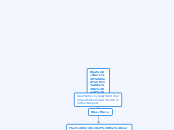arabera Jair Lechuga 7 years ago
295
To be past

arabera Jair Lechuga 7 years ago
295

Honelako gehiago
1. Were you with a lot of people? 2. Were they interesting? 3. Were we at the cinema last week? 4. Was John at the concert? 5. Were you happy? 6. Was the museum interesting? 7. Were we at the sports centre ? 8. Was the party fun ? 9. Were they at home all day ? 10. Was the weather good ?
1. I wasn’t with you yesterday. 2. He wasn’t in London on Friday. 3. They weren’t at the concert. 4. You weren’t in class yesterday. 5. We weren’t at the art gallery. 6. She wasn’t there on Saturday. 7. We weren't at the sports centre 8. The party wasn't fun 9. They weren't at home all day 10. The weather wasn't good
1. I was in London in 1999. 2. Pam was in London in 1999, too. 3. We were together. 4. She was my girlfriend. 5. Helen was absent from class yesterday 6. We were at the movies last night 7. Jhon and Mary were in Quito the last week 8. I was too busy yesterday 9. I was tired this morning. 10. You were funny today